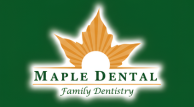How does smoking and alcohol affect your breath?
As a dentist in Hesperia, I frequently hear patients express concern about bad breath, or halitosis. This common issue can be caused by many factors, but smoking and alcohol consumption are two of the most prominent culprits. If you smoke or drink, you might have noticed that these habits can lead to unpleasant breath. But why exactly does this happen? Let’s dive into how smoking and alcohol affect your breath and what you can do about it.
How does smoking affect your breath?

Smoking is a major contributor to bad breath, and its effects can last much longer than you might think. The chemicals in cigarette smoke, such as nicotine and tar, don’t just stick to your clothes and hair—they also cling to your mouth and throat, causing that smoky, unpleasant odor. Even brushing your teeth afterward may not completely mask it.
But there’s more to it than just the smell. Smoking has several long-term consequences for your oral health that can make bad breath even worse:
- Gum disease (periodontal disease)
Smoking weakens your immune system, making your gums more vulnerable to infections. Gum disease is a leading cause of bad breath, as bacteria build up in the infected pockets around your teeth. - Dry mouth
Nicotine reduces saliva production, which plays a crucial role in washing away food particles and neutralizing acids in the mouth. Without enough saliva, bacteria thrive, leading to a dry mouth and bad breath. - Tooth staining
The nicotine and tar in cigarettes can stain your teeth, giving them a yellowish appearance and trapping odor-causing particles, which intensifies bad breath. - Increased risk of oral cancer
Smoking is a major risk factor for mouth cancer, which can also lead to bad breath. Regular check-ups with a dentist in Hesperia are essential to catch any issues early. - Volatile sulfur compounds (VSCs)
Bacteria in your mouth break down food particles and dead cells, producing VSCs like hydrogen sulfide, which smells like rotten eggs. Smoking worsens this process, making the bad breath even more noticeable.
If you smoke, quitting is the most effective way to reduce bad breath. But even if quitting isn’t on the horizon, maintaining good oral hygiene and scheduling regular dental check-ups can help manage the effects.
How does alcohol affect your breath?
Alcohol is another common culprit behind bad breath, often called “alcohol breath.” Here’s how alcohol contributes to the issue:
- Acetaldehyde production
When alcohol is metabolized in the liver, it produces acetaldehyde, a pungent compound responsible for the noticeable “alcohol breath.” - Dehydration
Alcohol is a diuretic, meaning it increases urine production and causes dehydration. When you’re dehydrated, your body produces less saliva. Without enough saliva, bacteria can multiply, leading to bad breath. - Bacterial imbalance
Drinking alcohol can disrupt the balance of bacteria in your mouth. Normally, good bacteria keep harmful bacteria in check. But alcohol can throw off this balance, allowing harmful bacteria to thrive. - Acid reflux
Alcohol can relax the muscles at the top of your stomach, allowing stomach acid to flow into your esophagus, resulting in sour-tasting breath. - Food pairings
Many alcoholic beverages are paired with foods that can make bad breath worse, like salty or spicy snacks. So, it’s not just the alcohol—it’s also the combination of the two.
Like smoking, alcohol breath will eventually fade as your body processes the alcohol. But the more you drink, the stronger and longer-lasting the bad breath can be.
How smoking and alcohol work together to impact your breath
When smoking and alcohol are combined, the effects on your breath are compounded. Both habits reduce saliva production, which is key to washing away food particles and neutralizing acids. This creates a dry mouth, allowing bacteria to thrive and produce sulfur compounds, which intensify bad breath. Smoking adds to the unpleasant mouth odor and gum disease, while alcohol further dries out the mouth, creating the perfect environment for bacteria to build up.
Together, smoking and alcohol create a “double whammy” effect on bad breath and increase the risk of oral health problems, including gum disease and even oral cancer. That’s why it’s so important to manage your oral health with regular dental care.
Tips for fresh breath while smoking or drinking
While the best way to keep your breath fresh is to quit smoking and limit alcohol consumption, here are some tips to manage bad breath:
- Stay hydrated
Drinking plenty of water helps keep your mouth moist and flushes away bacteria and food particles. Sip water throughout the day, especially while smoking or drinking alcohol. - Use mouthwash
A good mouthwash can kill bacteria, neutralize odors, and help with dry mouth. Look for one that also specifically helps reduce dry mouth. - Chew sugar-free gum
Chewing gum increases saliva production, which helps fight dry mouth. Just be sure it’s sugar-free to avoid encouraging more bacteria. - Brush and floss regularly
Brush your teeth at least twice a day and floss once daily to remove food particles and plaque that can contribute to bad breath. - Visit your dentist in Hesperia regularly
Regular dental check-ups are key to detecting any gum disease or other oral health issues that may be causing bad breath. We offer comprehensive exams and professional cleanings to help you maintain fresh breath and a healthy mouth.
When to see a dentist?
If bad breath persists despite maintaining good oral hygiene, it’s time to see a dentist. A dental professional can identify any underlying issues, like gum disease or tooth decay, and offer the right treatment. Call 760-949-7274 now or schedule an appointment with us at Maple Dental. Let’s work together to ensure your oral health is in top shape and your breath stays fresh!


